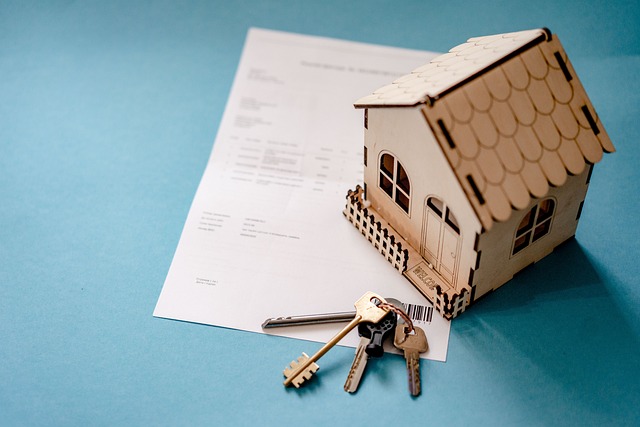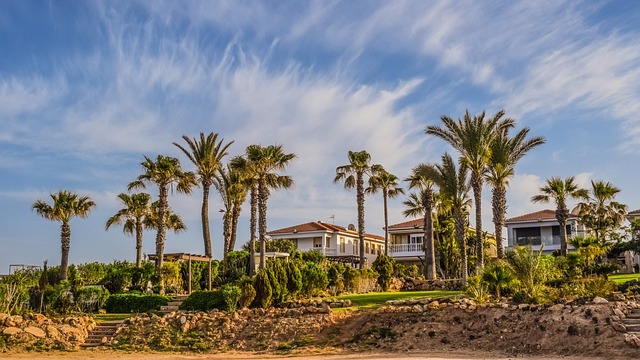Singapore's Executive Condominium (EC) scheme serves as a housing option for first-time homeowners and upgraders who don't qualify for public flats, offering a balance between public and private housing. To be EC eligible, applicants must meet the Housing & Development Board (HDB) and National Housing Board (NHB) criteria: they must be at least 21 years old, not own any properties, and their income must fall within the stipulated limits by the CPF Board. Upon purchasing an EC, owners are required to occupy it as their primary residence for a set period before it can be sold on the open market. The Master Plan integrates this scheme into Singapore's broader housing strategy. The eligibility criteria include income ceiling adherence and the restriction of owning only one residential property prior to purchasing an EC, which must be disposed of within six months post-purchase to maintain future public housing options. Couples buying an EC must consider the Total Debt Servicing Ratio (TDSR) and Mortgage Serving Ratio (MSR) frameworks to ensure their repayments are sustainable.
Post-occupation, after fulfilling the Minimum Occupation Period (MOP) of five years, EC owners can sell their units in the open market without a resale levy, offering them flexibility and potentially higher resale values due to access to a broader buyer pool, including non-Singaporeans. The post-MOP phase also allows for participation in en bloc sales, which can be advantageous in the competitive Singapore property market. Understanding Executive Condo Eligibility both before and after the MOP is crucial for anyone considering an EC, as it influences long-term housing decisions and financial planning within Singapore's dynamic property landscape.
Exploring the intricacies of Executive Condominium (EC) eligibility in Singapore is a pivotal step for individuals considering this unique housing option. This guide demystifies the criteria and key factors for both Singapore Citizens (SCs) and Permanent Residents (PRs) looking to purchase an EC. From understanding the 5-year Minimum Occupation Period (MOP) implications to examining resale and en bloc potential post-MOP, this article is a comprehensive resource for prospective EC owners. Dive into the nuances of EC eligibility and make informed decisions about your home in Singapore.
- Understanding Executive Condominium (EC) Eligibility Requirements in Singapore
- Key Factors for Singapore Citizens and Permanent Residents Buying ECs
- The 5-Year MOP: What It Means for EC Owners in Singapore
- Exploring the Resale and En bloc Options for ECs After the Minimum Occupation Period
Understanding Executive Condominium (EC) Eligibility Requirements in Singapore

In Singapore, the Executive Condominium (EC) scheme serves as a housing option for both first-time homeowners and upgraders who do not necessarily meet the criteria for a public flat but aspire to own a more spacious and private home. To be eligible for an EC, potential buyers must satisfy several conditions set by the Housing & Development Board (HDB) and the National Housing Board (NHB). For Singaporean citizens, this includes being at least 21 years old and not owning or having an interest in any other flat at the time of application. Additionally, applicants must have a minimum household income ceiling to be eligible for an EC loan from financial institutions. This income ceiling is regularly updated by the CPF Board, ensuring that the scheme remains accessible to qualifying applicants.
Furthermore, applicants must also intend to occupy the EC as their sole residence for a stipulated period upon purchase. After fulfilling the minimum occupation period, which differs depending on whether the EC is in a mature or non-mature estate, owners can apply to HDB to release their EC from the restriction so they can sell it on the open market. The transition of an EC from HDB to the open market is a significant aspect to consider under the Master Plan for housing in Singapore. Understanding these eligibility requirements is crucial for prospective buyers looking to invest in an Executive Condominium, as it ensures a smooth and compliant home-buying process.
Key Factors for Singapore Citizens and Permanent Residents Buying ECs

For Singapore Citizens and Permanent Residents considering the purchase of an Executive Condominium (EC), understanding the eligibility criteria is paramount. As of the current regulations, individuals must be at least 21 years old to apply for an EC. This applies to both Singapore Citizens and Permanent Residents looking to buy these hybrid housing units, which offer the benefits of a condo while being sold at subsidized prices initially. Another key factor is the income ceiling requirement; applicants must earn no more than a specified amount to be eligible for an EC. This income cap is set by the Housing & Development Board (HDB) and is subject to change, so it’s important to refer to the latest guidelines issued by them.
Furthermore, Singapore Citizens and Permanent Residents are allowed to own only one residential property before applying for an EC. This includes private condominiums or flats. After obtaining the keys to their new EC, they must sell their previous property within a stipulated period, typically within 6 months from the date of collection of keys, to maintain eligibility for future public housing schemes. Couples looking to purchase an EC together should also consider the Total Debt Servicing Ratio (TDSR) and Mortgage Servicing Ratio (MSR) frameworks, which ensure that their monthly obligations do not exceed a certain percentage of their monthly income. By adhering to these guidelines, Singapore Citizens and Permanent Residents can navigate the eligibility requirements for Executive Condo ownership effectively.
The 5-Year MOP: What It Means for EC Owners in Singapore

In Singapore, the Minimum Occupation Period (MOP) is a significant aspect for those who own an Executive Condominium (EC). Upon obtaining the keys to an EC unit, residents must occupy the dwelling as their primary residence for a stipulated period of five years. This MOP serves as a mechanism to balance the public housing supply and ensure that these units are primarily available to first-time homeowners before they can sell the EC on the open market. During this period, EC owners cannot sublet the entire property or owner-occupy another Housing & Development Board (HDB) flat. This requirement aligns with the long-term public housing policies in Singapore and ensures that the ECs are utilized as intended, providing stable housing for families during their initial years. After satisfying the MOP, EC owners gain greater flexibility in how they can use or dispose of their property, which includes the option to sell it on the open market or lease it out. Prospective EC residents should carefully consider this commitment as part of their executive condo eligibility criteria when planning their housing journey in Singapore.
Navigating the MOP is crucial for potential and current EC owners to understand the implications it has on their property’s eligibility and usage. The five-year MOP not only dictates the timeline for occupancy but also affects the future liquidity of the EC unit. Once the MOP is fulfilled, the unit can be sold to Singapore citizens, permanent residents, or eligible foreigners, thus expanding the potential buyer pool. This transition from a public housing scheme to a private market property is a key aspect of the EC eligibility framework in Singapore and underscores the adaptability of this housing type to the evolving needs of its residents. Understanding the MOP and its implications is essential for anyone considering an EC as their home, ensuring they make informed decisions aligned with their long-term housing goals.
Exploring the Resale and En bloc Options for ECs After the Minimum Occupation Period

When considering the purchase of an Executive Condominium (EC) in Singapore, understanding the resale and en bloc options post the Minimum Occupation Period (MOP) is crucial for potential buyers. Upon fulfilling the MOP of five years, EC owners gain eligibility to sell their units in the resale market. This opens up opportunities for those looking to upgrade or relocate without adhering to the strict resale levy that otherwise applies to Singapore Citizens buying a second subsidized flat. The resale market also offers a diverse range of options, allowing buyers to choose from a variety of established neighborhoods and preferred locations.
Furthermore, the en bloc sales process is another avenue for EC owners to consider after the MOP. An en bloc sale occurs when all unit owners agree to sell their properties collectively. This can be advantageous as it may allow owners to unlock their equity earlier than expected and at potentially higher prices due to the collective sale fever in Singapore’s property market. It’s important for EC residents to be aware that after the MOP, their units are no longer subject to the five-year restriction on resale to non-Singaporeans, thus broadening the potential buyer pool. This enhanced eligibility can significantly impact the resale value and marketability of EC units in the post-MOP period.
In concluding our guide on Executive Condominium (EC) eligibility in Singapore, it is evident that understanding the intricacies of EC ownership is crucial for both Singapore Citizens and Permanent Residents. The eligibility requirements, minimum occupancy period, and subsequent resale or en bloc options are integral aspects to consider when venturing into the realm of EC living. Prospective buyers must carefully assess their circumstances against these guidelines to make informed decisions. By navigating the five-year Minimum Occupation Period (MOP) effectively, EC owners can tap into the dynamic Singapore property market post-MOP, whether through resale or capitalizing on en bloc opportunities. For a comprehensive grasp of EC eligibility, this guide has demystified the process, ensuring that potential residents are well-equipped to explore the benefits and responsibilities associated with owning an Executive Condominium in Singapore.
